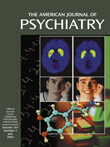We have come to see an expert tell us how he treats the stress disorders resulting from domestic violence.
In the front of the auditorium, the video flickers to life.
On the screen, we see a large black woman leaning back in her chair.
A short brown man from eastern India sits opposite her. He rises and walks out of view. There is a loud rattling as he adjusts the camera. Now we get a clearer view of the black woman, and the Indian man comes back to his chair.
“I am Dr. Bhaskar Sripada, and we are making this film so that other doctors can understand what you have gone through. Is that OK?”
The woman says, “OK,” quickly and with conviction.
Now the doctor is turned more toward the camera. We can see his face better. His voice is low and courteous. English is his second language, and he is not entirely at home with it. He speaks slowly to get it right, but the awkwardness only adds to the impression of politeness. Nothing about him is pretentious. His words are slow and halting, but his eyes are attentive and bright. He watches her closely. “Please tell us your story,” he says.
She is from the housing projects on the near north side. Her speech is thick and uneducated. “My sister and kids were there, and my man Leon came in. I ast him to give me some money for the kids’ food, and he says he’ll get some. He’s gone a long time, and I get some food from my sister.” She pauses.
Throughout all this, the doctor is looking at the woman intently, and her eyes go to his face repeatedly, but we cannot see what passes between them.
“When Leon comes back,” the woman goes on, “I ast him for the money, but he walks off in the bedroom. I go in and hit his hand, knock the money out. He yells and punch me up along the jaw, right here. I go at him, charging and swinging my hands, like this. He went out, and he come back with a vacuum cleaner. He swing it at me, and I put my hands up, like this, to keep it off. But it hit me in the left hand, and it’s bleeding. I don’t really know what’s happening. My sister starts screaming ’cause she sees the vacuum cut off my pinky finger—the piece goes flying across the room. She grabs a towel and wraps it on my hand. All I see was the blood on the towel. When I take it off my hand to look, I see my finger is gone, and I faint. Next thing I know, I wake up in the hospital. My sister called the ambulance and the police.”
“Would you show us the hand?” the doctor asks.
She extends her arm and spreads the four fingers. The little finger on her left hand is just a stub. The fourth finger looks stiff and damaged, too.
“The court didn’t do the right thing,” the woman says. “They put him in jail for 6 months, and they gave me a restraining order for 2 years after that. But a restraining order ain’t no good with a man like that. He’s due to get out in 1 week, and I’m damn scared.”
“It is possible for you to go to the shelter again,” the doctor says kindly, “and the staff will help you. Do you think that things have gotten better in your life?”
“Oh, yes,” the woman says. “Coming here to talk the last 6 months has made a big difference with me and having a doctor to listen. I made the decision to stay away from that man. I can wake up and have a backbone now.” She swings her arms a little, like she is walking down the street with a strong backbone, almost strutting. “I thank you for giving me a backbone.”
The doctor is modest. “We did not give you a backbone. You had a backbone before.”
“Yes,” the woman says, “I had a backbone, but then I lost it. Now I got it back.”
“That’s right,” the doctor says. “It was there before, but you forgot it. You know you can come back to talk some more. Thank you for sharing your thoughts with us. Will you make an appointment?”
“Yes,” the woman says and leaves the room.
The video goes blank. The lights come on. Now the doctor is standing in front of us in the audience. The story is so brutal and simple. What is the magic in what the doctor does?
“We never know if they will come,” he says. “We cannot keep them safe. There are too many dangers. When you are new at it, you are disappointed and angry when they do not show up. Then you learn. All of our patients are prodigals. Six months later, they come back. It is hard to prove what we have done. But they feel that they are better. You feel hopeless at first, but then the hopelessness diminishes. It is not that I do a lot, but just listening the way I do seems to help.”
His unwillingness to attribute much certainty to his method makes the claim oddly convincing. The secret of the treatment is not in the words or the actions. It is in the tone of Dr. Sripada, his look, and the size he makes himself.

